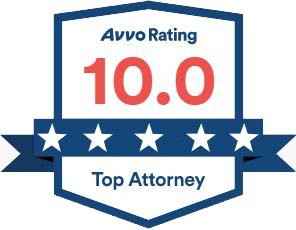Michigan Americans with Disabilities Act Attorneys
The ADA is a federal statute that prohibits employment discrimination based on disability. The statute also bars retaliation against employees for asserting their rights under the statute.
The ADA applies to employers throughout the country with at least 15 employees, including local governments, but not state governments (except as enforced by the EEOC). Federal employees are protected from disability discrimination by the Rehabilitation Act of 1973, which offers substantially the same protections as the ADA.
Under the ADA, “No covered entity shall discriminate against a qualified individual on the basis of disability in regard to job application procedures, the hiring, advancement, or discharge of employees, employee compensation, job training, and other terms, conditions, and privileges of employment.” 42 U.S.C. § 12112(a).
Not everyone with a “disabling” condition is protected by the ADA. To be protected, a person must be qualified for the job and have a physical or mental condition that “substantially limits” a “major life activity” (such as walking, talking, seeing, hearing, or learning). 42 U.S.C. § 12102. The ADA protects employees who are disabled, who are perceived as disabled, or who have a record of being disabled. The statute also requires employers to provide disabled employees with “reasonable accommodations” to enable them to perform the essential functions of their jobs, unless doing so would impose an “undue hardship” on the employer.
If an employee proves disability discrimination in violation of the ADA, the remedies available under the statute include hiring, reinstatement, promotion, back pay, front pay, compensatory damages, punitive damages, attorney’s fees, and costs. Compensatory damages and punitive damages are “capped” depending on the size of the employer.
To be protected by the ADA, an employee first must file a charge of discrimination with the U.S. Equal Employment Opportunity Commission (EEOC) within 180 days of the alleged discrimination. Under certain circumstances, this time limit may be extended to 300 days. Note: federal employees must file a charge of discrimination with their agency’s EEO office within 45 days of the alleged discrimination.
After an employee files a charge of discrimination, the EEOC will investigate the charge. As part of the investigation, the employer will be notified of the charge and asked to submit a response to the employee’s allegations (often referred to as a “position statement”). The EEOC may attempt to resolve the matter through mediation and settlement.
If the matter does not settle, at the end of the investigation, the EEOC will issue a finding of “probable cause” or “no probable cause” regarding the employee’s claims. The EEOC process usually takes several months. The EEOC then will issue the employee a “right to sue” letter that authorizes the employee to file a lawsuit in court, although it is possible to obtain the “right to sue” letter sooner. The employee’s lawsuit must be filed within 90 days of receipt of the letter.
Because the rules and procedures under the ADA are complicated, an employee should discuss his or her complaints of disability discrimination promptly with a qualified employment lawyer.





